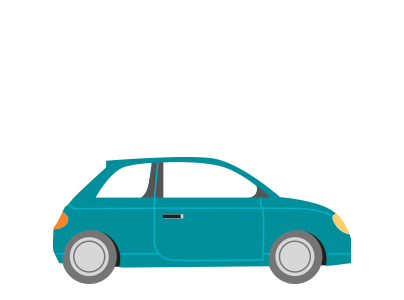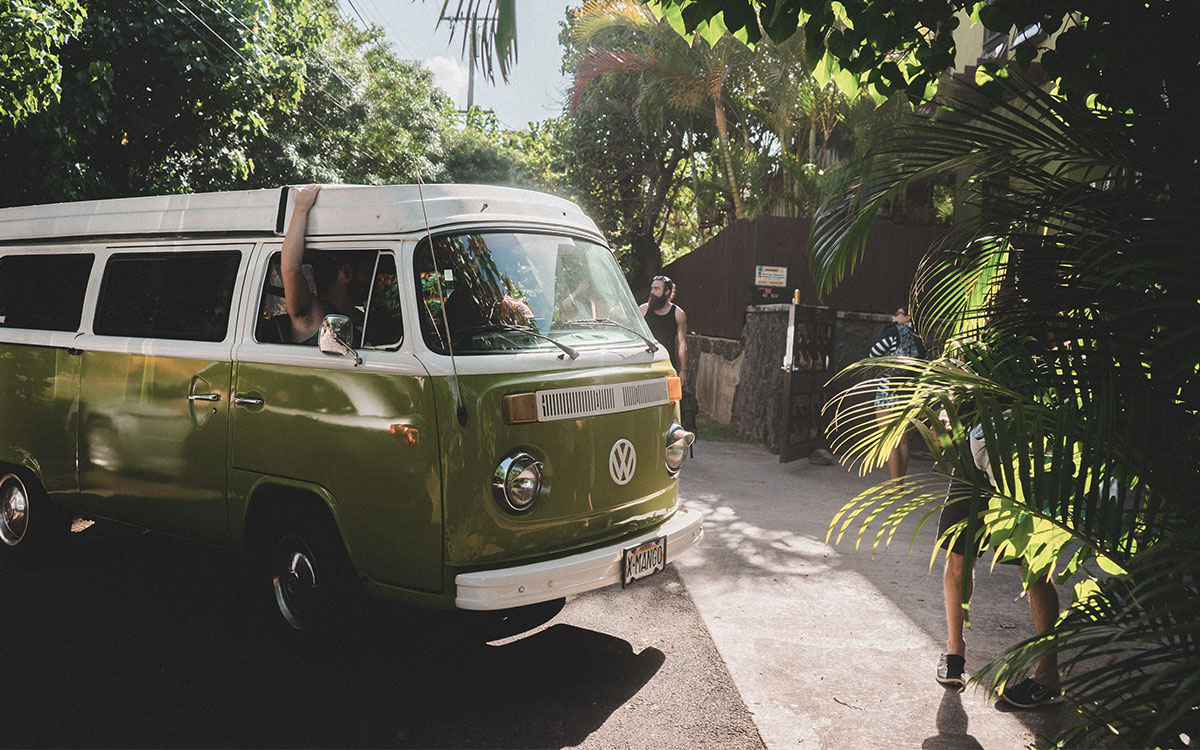Your flight is booked, your hotel reservation has been confirmed – now all you need to do is to hire a car, and you’re good to go. But hiring a car can be a bit of a minefield full of hidden fees and insurance clauses. To make sure you have the best travel experience, free of unpleasant auto-related surprises we’ve put together an easy, 4-point checklist to help you find your perfect car hire
Having a car on holiday is immensely convenient: you can go where and when you without encountering the horrors that public transport can bring.
However, the process of hiring a car can present its own smorgasbord of upsets that can be anything from mildly annoying to trip-ruining. Maybe you encounter hidden costs on drop-off or maybe the insurance you took doesn’t offer the coverage you expected leaving you with a massive bill on a tiny ding.
The good news is that by simply following our 4-point checklist, hiring a car should be breezy, easy and stressfree, with no hidden surprises along the way.
So, what should you be aware of for when looking for a car?
1. Check the price to avoid nasty surprises
- Taxes: Be sure to check that the total price includes all taxes and fees. Luckily on KAYAK, we show you the total price including taxes. If you want to see a breakdown of the price you see simply hover your mouse over any deal you are interested in and a field will appear with an easy to read breakdown.

- Mileage regulations: The included amount of miles can vary greatly depending on price or provider. If you’ve chosen a limited mileage package, make sure you know exactly how much you’ll have to pay for each additional mile after your quota. So, if you don’t know exactly which route you are going to take, enjoy road tripping or like to be a little flexible, it’s worth paying a little more for a car hire with unlimited inclusive miles. Then you can enjoy your road trip proper without having to keep an eye on the odometer.
- Tank regulations: Depending on the provider, you will get your hire car with a full, half-full or an empty tank. The rule of thumb is that you should return the car with the same amount of petrol in it as when you picked it up – with a full, half-full or empty tank. In some cases, you pay for a set amount of petrol in advance, and if you use less than calculated during the journey, you will be refunded the difference. As each provider has a different system, it is worth spending an extra minute checking how they regulate tankage. You can find this information whenever you hit the ‘View Deal’ button which will take you to the provider’s page.
- Extras: Remember that for almost all the extras you add to your car hire, an additional fee will be charged. This applies to additional drivers, drivers under 25, GPS systems, child seats, roof racks etc.

2. Choose the appropriate insurance cover for your road trip to stay worries free
Every car hire companies offer you a range of different insurance policies when booking. So that you are better prepared and know exactly what is covered, we will break down the most common insurance offers within Ireland:
- Third Party Liability Insurance: is mandatory, is included in the hire price and covers the driver in case of damage to someone or something else, including passengers in the same vehicle.

- Collision Damage Waiver: This insurance is also compulsory in Ireland (though not everywhere in the world) and covers damage caused to the vehicle and technically frees the driver from liability. However, depending on the what the provider offers all damages may be covered, or it may only be a corresponding portion, once again resulting in excess*. N.B. Tire and glass damage are usually not covered, and you may want to look at Super Collision Damage Waiver options which offer fuller coverage, but with a full price tag.
- Theft Insurance: If the car you’ve hired in stolen, this will cover the whole or parts of said vehicle. Take note; you may be required to pay an excess if this occurs*.
- Insurance for extras: There are a range of extra types of insurance offered that aren’t covered by basic protection, e.g. windshield damage, young driver insurance or personal accident insurance. For that extra peace of mind check on your provider’s homepage to see what coverage they offer.
* What is Car Hire Excess Insurance? If your rental car is damaged or stolen or during the duration of the hire period you will have some coverage due to whatever insurance you have taken out. Where confusion tends to arise is that most insurances you get have a cap on them and you are still eligible to cover the first portion of the loss. The amount varies depending on the offer and can be anywhere between a few hundred and a few thousand pounds. Closely read through the conditions of the insurance policy to know what your excess is:
For example, if you hire a car with Collision Damage Waiver Insurance but see that you have an excess of 900 € that means that you are still responsible for any payments resulting from theft or damage up to 900 €. Only once the damages exceed 900 € will the insurance kick in and take care of the rest.

3. Pick-up and Drop-off: Proper preparation is everything
- Where and when: Always check the exact location at which to pick up and drop off your car hire as many providers will have outlets at the airport and in several locations throughout the nearest city – some providers charge a surcharge when you pick up the car at one store and return it to another. Also, pay close attention to the time of pick-up and how flexible you can be here. Some vendors will cancel your booking if you do not appear promptly at the time indicated and might even give your car to someone else. Have a thorough read of the Terms & Conditions on the provider’s page, send their customer support team an email directly if you have any questions and make sure to have the telephone number of the provider at hand in case you need to contact them due to factors such as delays. Having said that, if you’re picking your car up at the airport, some providers will ask you for your flight number, so that they can stay informed about possible delays.

- Collection: Do you have all the necessary papers with you? A valid driving license, any additional driving permits and a second form of identification are, of course, mandatory. Also, very few providers will hire a car out to you without a credit card as most companies will charge the credit card with the deposit. Please read the hire conditions of the respective provider to know what the possible costs to your card may be, e.g. some providers may charge £500 a refundable deposit before you can hire a car from them; turning up with a card with a £300 limit isn’t going to help you here.
- The state of the vehicle: Almost all car hire companies will provide you with a short report on the condition of the car at the time of pick-up and any damage and deficiencies that are already existent, e.g. small dents or scratches. This means that the supplier will know upon drop off whether any damage to the vehicle is new or whether that pesky dent on the bumper was already there. KAYAK Insider Tip: If you have any concerns, especially if you don’t get a damage report, take photos of any damage that you notice on the car before leaving the pick-up point. This provides you with proof of the state of the car at the time of pick up.
- Return: Often, the official statement regarding the condition of the car you hired upon its return isn’t issued until the following day. KAYAK Insider Tip: When you return your car, make sure that someone from the agency acknowledges that you have returned the car without any new damage to it and that it’s in the same condition as when you picked it up. Of course, get that in writing and signed, just to be on the safe side.
4. Choose the right car for you
It might sound obvious, but if you are thinking about hiring a car for your next holiday, you should carefully consider how you’ll be travelling before booking. Often people will just go for the cheapest option, but while a hatchback is fine for a family with luggage if they are just using it to get round a city, the same can’t be said if the same family is taking a 6-day road trip through New Zealand’s North Island and is also transporting camping gear.

When booking, you have to take into account the following: the duration of your trip, the number of passengers in the vehicle and how much luggage you all have. Also where you are travelling is important: is the area mountainous? Is it winter? Are you transporting special equipment? Do you need air conditioning? Do you prefer a manual transmission or automatic? Would you prefer a convertible or SUV?
While it may seem as if there are lots of things to think about you most likely know the answers already and taking five minutes to run through what will make the right car for you is going to make all the difference once you hit the road.
Safe travels! And enjoy…






